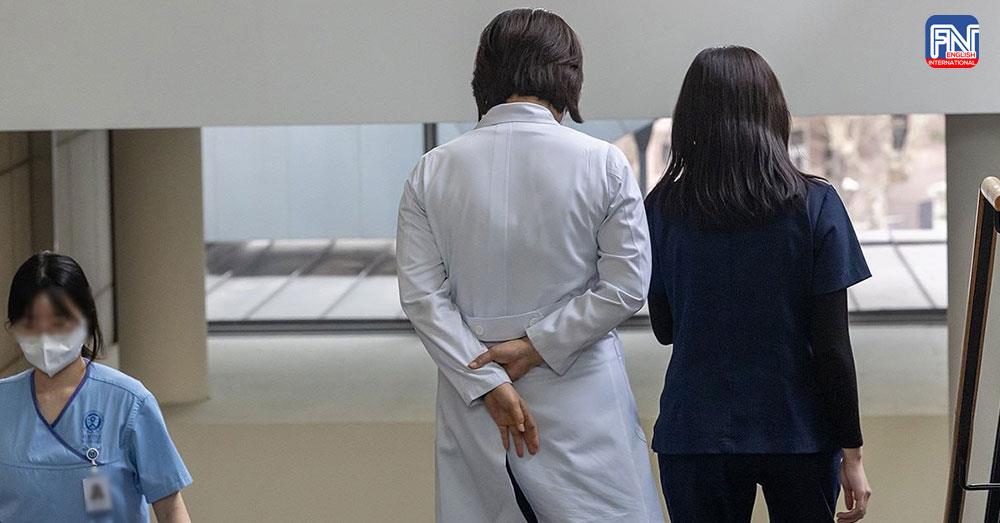SEOUL, March 25 (Yonhap) – Medical professors began submitting their resignations and reducing their work hours Monday in support of a prolonged walkout by trainee doctors, despite the government's attempt for talks over a reform plan that increased the number of medical students, according to a doctors' group.
Professors from 19 out of 40 medical schools signed a joint statement, saying they will "submit their resignations today," according to the group of medical professors nationwide.
Medical professors, who are senior doctors at major university hospitals, had threatened to quit this week, but they pledged to remain at work.
More than 90 percent of the country's 13,000 trainee doctors have been on strike in the form of mass resignations since Feb. 20 to protest the government's decision to increase the medical school enrollment quota by 2,000 seats.
Prospects of talks between the government and the medical community over the walkout by junior doctors were raised Sunday as President Yoon Suk Yeol called for a "flexible" measure over the government's move to suspend the licenses of defiant trainee doctors.
However, another group of medical professors demanded the government scrap the reform plan that increased medical school admission seats, saying it would sit down for talks with the government only if the plan is abolished.
The demand by the Medical Professors Association of Korea is expected to complicate an attempt by the government to hold talks with the medical community.
"Unless the government scraps the plan to increase the number of medical school freshmen and withdraws the allocation of seats, the ongoing crisis cannot be settled," the association said.
"If the government is willing to withdraw (the plan), we are ready to discuss all the pending issues in front of the people," it said.
Medical professors at Yonsei University College of Medicine, one of the country's biggest medical schools, submitted their resignations en masse. However, the exact number was not disclosed.
Similarly, the medical school faculty of the University of Ulsan made a comparable move, resulting in the resignation of 433 out of approximately 1,000 medical professors.
Medical school professors at Seoul National University and Seoul National University Hospital also began voluntarily submitting resignations, according to an emergency committee chief.
"Earlier, out of 1,400 professors surveyed, approximately 900 responded, with more than half indicating their intention to submit resignations," Bang Jae-seung told reporters.
Medical professors will also go ahead with their plan to reduce their weekly work hours to 52 hours by adjusting surgeries and other medical treatments, according to the association.
Earlier in the day, Health Minister Cho Kyoo-hong said that relevant ministries have swiftly begun work to hold talks with the medical community.
"Related ministries have immediately launched working-level preparations to hold talks with the medical community," Cho said at a government response meeting. "We will arrange a meeting between the government and the medical community as soon as possible."
Still, it is unclear whether potential talks with the medical community could produce tangible results as the government allocated the additional 2,000 admission seats to universities last week, in an indication that the government would not back down from the plan.
The government is pushing to increase the admission quota to address a shortage of doctors, particularly in rural areas and essential medical fields, such as high-risk surgeries, pediatrics, obstetrics and emergency medicine.
But doctors argue that the quota hikes would compromise the quality of medical education and services and create a surplus of physicians, and the government must devise ways of better protecting them from malpractice suits and extending compensation to induce more physicians to practice in such "unpopular" areas.

Photo from Yonhap